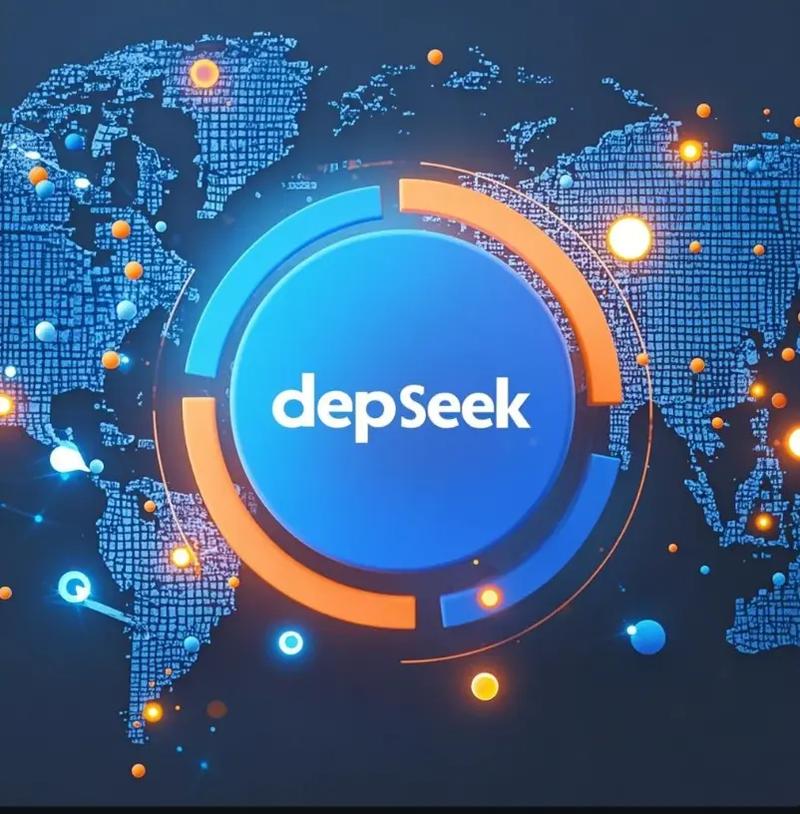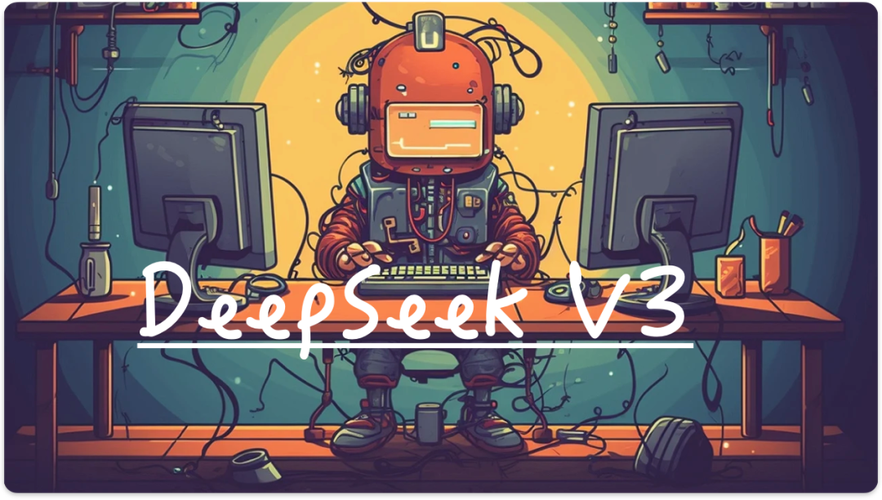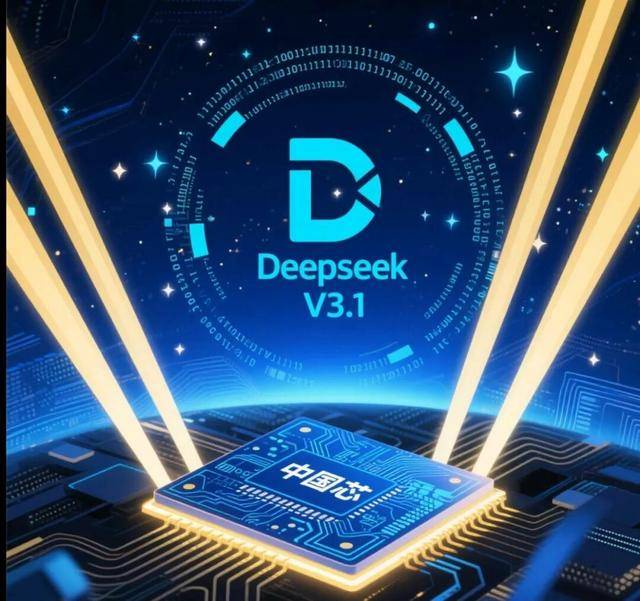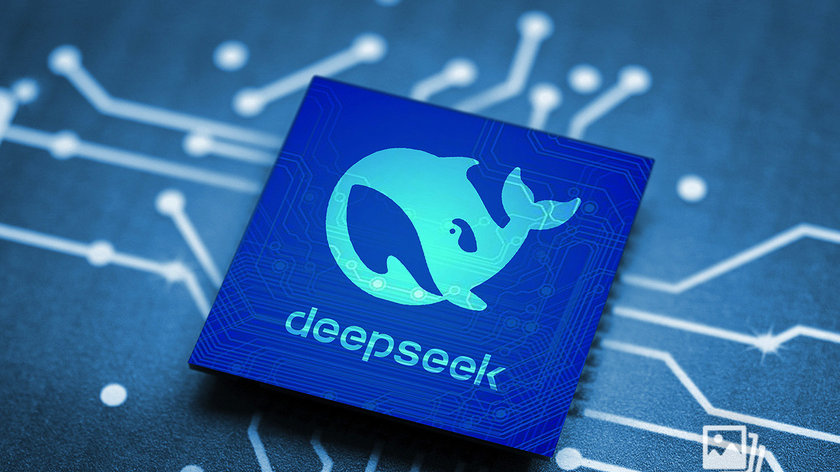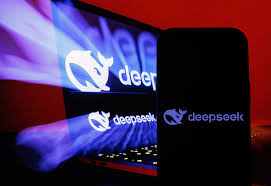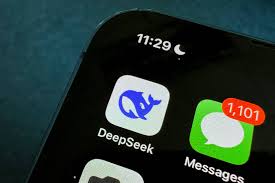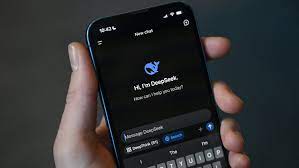Macron Reacts to DeepSeek: “No Plan to Ban Chinese AI” — A Geopolitical Turning Point
Introduction: A Statement That Echoed Across Continents
In a surprising yet strategically calculated move, French President Emmanuel Macron has made global headlines by publicly stating that France has “no plan to ban Chinese AI models,” specifically in reference to the rising influence of platforms like DeepSeek, China’s groundbreaking AI initiative. The statement was made during a Firstpost-France TV exclusive interview in mid-2025 and has since sparked intense discussion within diplomatic, technological, and security circles worldwide.
As artificial intelligence becomes central to global power dynamics, Macron's statement signals a departure from the more hawkish attitudes of some Western allies toward Chinese-developed technology. It represents not just a political stance but also a philosophical and strategic pivot for France — and potentially the European Union.
In this article, we dive deep into the context, implications, and ripple effects of Macron’s declaration — exploring why DeepSeek matters, how France and China view AI differently, and what this means for AI regulation, innovation, and the digital sovereignty debate in Europe.
Table of Contents
-
What is DeepSeek and Why is it Making Waves?
-
Macron’s Statement: Context and Key Messages
-
France’s AI Strategy: Openness vs Control
-
The U.S. and China: AI Cold War Heats Up
-
Europe’s Position: Caught in the Crossfire
-
Macron’s Geopolitical Calculus
-
AI Sovereignty: What Does It Mean for France?
-
DeepSeek’s Rise: More Than Just a Tech Story
-
The French Tech Sector Reacts
-
Public Sentiment and Media Coverage
-
Macron’s Previous Stance on Tech and Surveillance
-
The Role of the EU’s AI Act
-
Can Europe Build Its Own DeepSeek?
-
Why DeepSeek Is Viewed as “Scary” in the West
-
Techno-Diplomacy: France’s Balancing Act
-
Implications for NATO and 5G-Like Bans
-
France-China Relations: A Broader Tech Partnership?
-
DeepSeek in French Institutions: Will It Be Adopted?
-
What This Means for Developers and Startups
-
Conclusion: A New Chapter in Global AI Alignment
1. What is DeepSeek and Why is it Making Waves?
DeepSeek is a Mixture-of-Experts (MoE) large language model developed by a leading Chinese AI lab. Its release of open-weight 67B and 671B parameter models has quickly gained popularity among researchers, developers, and institutions around the world.
Unlike traditional Western models like GPT-4 or Claude, DeepSeek is:
-
Open-source and modifiable
-
Optimized for multilingual reasoning, especially in Chinese
-
Surprisingly efficient thanks to MoE routing
-
Backed by state-supported Chinese infrastructure
It represents not just technological parity with the West, but also a strategic tool for digital independence, especially for nations outside the U.S. tech sphere.
2. Macron’s Statement: Context and Key Messages
During an exclusive joint broadcast on Firstpost and France TV, Macron was asked whether France would consider banning Chinese LLMs (Large Language Models) like DeepSeek, citing concerns about national security, data privacy, and political alignment.
His response:
“France believes in openness, innovation, and technological balance. We have no plan to ban Chinese AI. What matters is transparency, not origin.”
This response drew applause from the tech community and raised eyebrows in Washington and London.
3. France’s AI Strategy: Openness vs Control
France has historically favored:
-
Strategic independence from both the U.S. and China
-
A regulated but open AI ecosystem
-
Investment in local champions (like Mistral, Bloom, and Hugging Face)
Macron’s administration supports a pluralistic AI market — unlike the U.S. model of Big Tech dominance or China’s state-centralized AI governance.
4. The U.S. and China: AI Cold War Heats Up
The U.S. has already:
-
Restricted Nvidia GPU exports to China
-
Blacklisted several Chinese AI labs
-
Warned allies about “backdoors” in Chinese models
In this context, Macron’s stance defies the U.S. pressure to blacklist Chinese AI — much like his earlier divergence on Huawei and 5G.
5. Europe’s Position: Caught in the Crossfire
The EU has traditionally struggled with:
-
Lack of AI champions on the scale of OpenAI or Baidu
-
Over-dependence on U.S. cloud infrastructure
-
Tightrope-walking between innovation and regulation
Macron's remarks could signal a realignment, where Europe embraces open Chinese AI tools to avoid technological dependency on either superpower.
6. Macron’s Geopolitical Calculus
Macron’s message serves several purposes:
-
Sends a message of strategic autonomy to Washington
-
Builds bridges with Beijing without giving in entirely
-
Signals support for European developers who rely on DeepSeek and similar models
-
Positions France as a neutral AI innovation hub
It also aligns with his broader philosophy of "Europe as a third power."
7. AI Sovereignty: What Does It Mean for France?
For France, AI sovereignty means:
-
Being able to audit, fine-tune, and deploy models locally
-
Avoiding vendor lock-in from U.S. companies like OpenAI
-
Having models that reflect French culture, ethics, and language
-
Hosting infrastructure and compute within national borders
DeepSeek, with its open architecture and adaptability, fits this vision — at least on paper.
8. DeepSeek’s Rise: More Than Just a Tech Story
DeepSeek has gained popularity because:
-
It performs competitively with GPT-4 on benchmarks
-
Its code models beat many Western open-source alternatives
-
It supports multilingual training and reasoning
-
It's open, unlike ChatGPT or Claude
For nations seeking AI freedom, DeepSeek is not a threat — it’s an opportunity.
9. The French Tech Sector Reacts
The French AI community has responded positively:
-
Hugging Face has added DeepSeek models to their hub
-
LM Studio supports DeepSeek’s GGUF format
-
Université Paris-Saclay and other research institutions are exploring DeepSeek for NLP research
Many see it as a practical tool, not a political weapon.
10. Public Sentiment and Media Coverage
Mainstream media in France has split into:
-
Pro-openness voices who see DeepSeek as a counterweight to Silicon Valley hegemony
-
Security hawks who worry about data exfiltration and model alignment
Social media has seen a spike in tutorials, benchmarks, and GitHub projects involving DeepSeek in French.
11. Macron’s Previous Stance on Tech and Surveillance
Macron has long walked a fine line between:
-
Protecting national interests
-
Promoting tech innovation
-
Avoiding over-regulation that stifles startups
His refusal to ban Chinese AI echoes his refusal to outright ban TikTok or Huawei — instead favoring “structured integration under EU law.”
12. The Role of the EU’s AI Act
The EU AI Act, passed in 2025, does not ban models based on origin. Instead, it requires:
-
Transparency reports
-
Risk classification
-
Robust human oversight
DeepSeek could comply with EU rules if used responsibly and locally hosted — Macron is betting on that.
13. Can Europe Build Its Own DeepSeek?
Efforts are underway:
-
Mistral AI released competitive 7B and 12B models
-
BLOOM remains a symbol of multilingual LLM efforts
-
New initiatives backed by EU funds aim to create 100B+ parameter models
But DeepSeek has shown that scale, speed, and openness are still challenges in Europe.
14. Why DeepSeek Is Viewed as “Scary” in the West
Western analysts worry DeepSeek may:
-
Spread Chinese ideological alignment
-
Serve as an intelligence-gathering platform
-
Undermine the dominance of U.S. cloud AI platforms
But so far, there’s no concrete evidence of malicious design — just a lot of potential.
15. Techno-Diplomacy: France’s Balancing Act
Macron is practicing "techno-diplomacy" — engaging with all sides while maintaining local control.
By refusing to ban DeepSeek, he sends a signal to:
-
China: France remains a potential partner
-
The U.S.: France wants an equal seat at the AI table
-
Europe: Sovereignty means choosing tools that work, regardless of origin
16. Implications for NATO and 5G-Like Bans
Macron’s move could complicate:
-
NATO’s cybersecurity doctrine
-
Transatlantic cooperation on data governance
-
Attempts to coordinate AI alignment across allies
Just like with Huawei, expect internal EU disagreements over how to treat Chinese AI tools.
17. France-China Relations: A Broader Tech Partnership?
Macron’s comment may be the start of:
-
Joint AI research programs
-
Tech exchanges via Confucius Institutes
-
Chinese tech firms establishing research hubs in France
-
AI tourism and education partnerships
Cautious, but symbolic.
18. DeepSeek in French Institutions: Will It Be Adopted?
Already, DeepSeek has been:
-
Tested by French universities
-
Used by French developers via Ollama and LM Studio
-
Integrated into French-language chatbot prototypes
If proven safe, DeepSeek could find wider adoption in education, law, and cultural preservation.
19. What This Means for Developers and Startups
French developers now:
-
Have freedom to choose between OpenAI, DeepSeek, and open-source
-
Can run DeepSeek offline on M1/M2 Macs or local servers
-
Avoid U.S. API dependency for commercial use
It’s a win for innovation and decentralization.
20. Conclusion: A New Chapter in Global AI Alignment
Macron’s statement isn’t just about DeepSeek.
It’s about freedom of technological choice,
balancing global powers, and
shaping Europe’s AI future on its own terms.
By keeping the door open to Chinese models — but under European rules — Macron has issued a challenge:
“Let AI be global, but let its governance be sovereign.”
And that, perhaps, is the most future-proof position of all.

